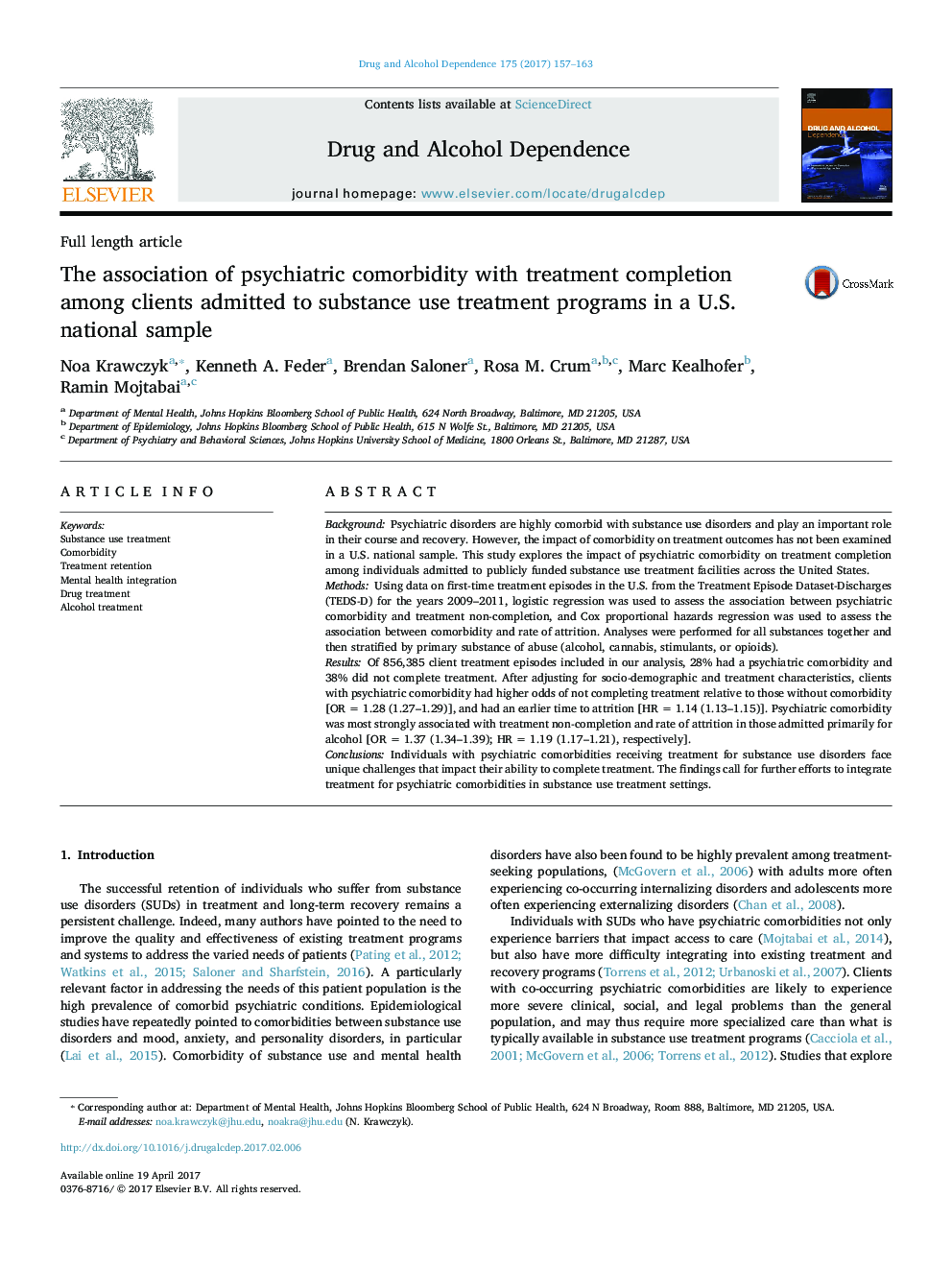| Article ID | Journal | Published Year | Pages | File Type |
|---|---|---|---|---|
| 5120080 | Drug and Alcohol Dependence | 2017 | 7 Pages |
â¢In the US, clients with psychiatric comorbidity have lower substance use disorder (SUD) treatment retention.â¢Comorbidity is most strongly associated with treatment (tx) non-completion for alcohol users.â¢Comorbidity does not impact retention of opioid users in programs that utilize medication assisted treatment (MAT).
BackgroundPsychiatric disorders are highly comorbid with substance use disorders and play an important role in their course and recovery. However, the impact of comorbidity on treatment outcomes has not been examined in a U.S. national sample. This study explores the impact of psychiatric comorbidity on treatment completion among individuals admitted to publicly funded substance use treatment facilities across the United States.MethodsUsing data on first-time treatment episodes in the U.S. from the Treatment Episode Dataset-Discharges (TEDS-D) for the years 2009-2011, logistic regression was used to assess the association between psychiatric comorbidity and treatment non-completion, and Cox proportional hazards regression was used to assess the association between comorbidity and rate of attrition. Analyses were performed for all substances together and then stratified by primary substance of abuse (alcohol, cannabis, stimulants, or opioids).ResultsOf 856,385 client treatment episodes included in our analysis, 28% had a psychiatric comorbidity and 38% did not complete treatment. After adjusting for socio-demographic and treatment characteristics, clients with psychiatric comorbidity had higher odds of not completing treatment relative to those without comorbidity [ORÂ =Â 1.28 (1.27-1.29)], and had an earlier time to attrition [HRÂ =Â 1.14 (1.13-1.15)]. Psychiatric comorbidity was most strongly associated with treatment non-completion and rate of attrition in those admitted primarily for alcohol [ORÂ =Â 1.37 (1.34-1.39); HRÂ =Â 1.19 (1.17-1.21), respectively].ConclusionsIndividuals with psychiatric comorbidities receiving treatment for substance use disorders face unique challenges that impact their ability to complete treatment. The findings call for further efforts to integrate treatment for psychiatric comorbidities in substance use treatment settings.
